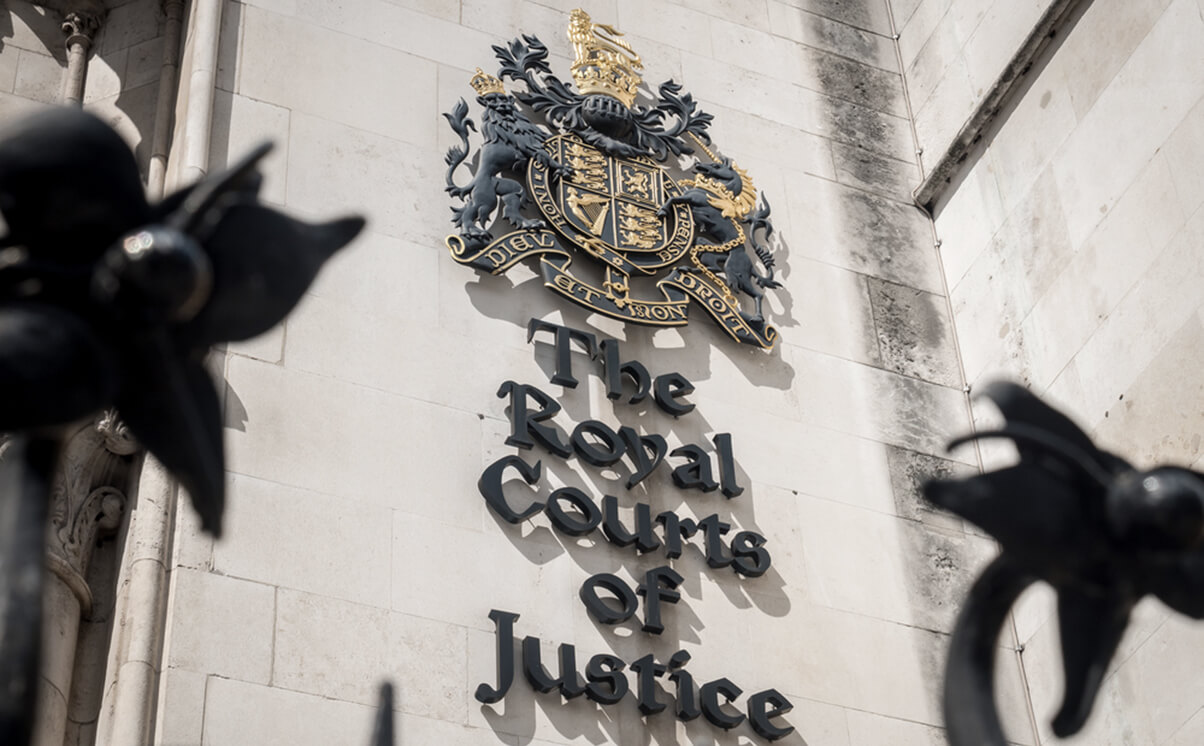It is widely acknowledged that the global Covid-19 pandemic could cause the largest wave of cash-flow and trading insolvencies in recent history. Bank of England projections indicate that the UK economy is facing the deepest recession in over 300 years, an estimated 30% drop in output in the first half of 2020. In this article, first published in International Accountant Magazine, Marc Jones, a partner in our Commercial Litigation, Fraud and Securities Litigation teams, looks at what impact the downturn might have on the insolvency regime. (The article was published just before the Corporate Insolvency and Governance Bill received Royal Assent on 25 June. The provisions of the Bill referred to in the article are now law).
Government responses
The UK government has taken unprecedented steps to support businesses and workers through initiatives such as the Covid Corporate Financing Facility (CCFF) and the Coronavirus Job Retention Scheme. However, it is clear that the scale and duration of these measures are limited and will not be enough to stop many thousands of businesses entering into some form of insolvency down the line. A serious problem for today’s companies – and consumers – is that the existing corporate insolvency regime is not fit for saving good businesses.
It is normal for some businesses to fail, just as it is for some to succeed. As one business or even industry sector goes under – whether that be because it’s been badly run, undercut by foreign markets, rendered obsolete by new technology – so investment is reallocated to other profitable ventures. In normal times, this “creative destruction” is at the heart of modern capitalism, and corporate insolvency is fundamental to ensuring its functioning. But these are anything but normal times.
From very early on in this crisis, the focus of the government has been on trying to put the UK economy into suspended animation, ready to be reanimated once Covid-19 is beaten. Government ministers have talked about giving businesses breathing space in the form of debt holidays.
They have warned creditors against premature threats of litigation, and have told contracting parties to behave fairly. Some of that has become law, some is in draft legislation and some is just guidance. Working out quite what is expected of the insolvency profession in the current context is far from clear.
Move from a creditor-led regime
The crux of the issue is the creditor-led nature of the current insolvency regime, which prioritises the rights of creditors over keeping the insolvent business going. In contrast to government efforts which target the economy as a whole, each insolvency is treated independently. Keeping alive “Covid-insolvent” businesses may be in the national economic interest, but it is not relevant in the current insolvency process – which prioritises individual creditors, not the UK economy.
Clearly, in an unprecedented crisis such as today’s, in order to give businesses the best chance of survival there must be a shift away from the creditor-led nature of the current regime, on a temporary basis at the very least. A form of trading insolvency, or “light touch administration procedure”, which enables companies to weather the storm would offer a short-term lifeline to businesses fighting for survival.
Debenhams is one high profile example of a company which has adopted this approach in its recent administration. At the centre of the process is a cooperation and consensus between officeholders and directors. The administrators delegate responsibility to the directors and take a monitoring role, applying key safeguards where appropriate. Equally, the recent decision in the Carluccio’s administration, confirming that the government’s furloughing scheme is available to entities in administration, is welcome.
Corporate Governance and Insolvency Bill
The recently published Corporate Governance and Insolvency Bill (assuming it is enacted in substantially its current form) goes some way to addressing the problems. The Bill introduces some temporary Covid-19 specific measures, as well as some permanent changes to the insolvency landscape. Of the Covid-19 specific items, the well-publicised suspension of wrongful trading gives directors some wiggle room but significantly it does not release directors from their other statutory and fiduciary duties.
More significant is the restriction on presenting a winding-up petition. A creditor will not be able to do so unless “the creditor has reasonable grounds for believing that coronavirus has not had a financial effect on the company, or the facts by reference to which the relevant ground applies would have arisen even if coronavirus had not had a financial effect on the company”. That is a very significant restriction and, of the various measures in the draft bill, is surely the one that will give rise to most disputes. What is meant by “financial effect” is not clear but it looks like a low threshold that will make it very difficult for creditors to petition. Those that do may well have to present expert evidence on the financial performance of the debtor in the pre-Covid-19 period to support their reasonable belief.
Of the permanent changes, the “moratorium” and “cross-class cram down” procedures are the most significant. The first enables a company to obtain a 20-day payment holiday during which legal action cannot be taken against it. In order to obtain a moratorium, all the company needs do is appoint an IP as “monitor” to oversee the moratorium – though the directors remain in control at all times – and file certain papers at court. The moratorium comes into effect on filing. The period can be extended to 40 days by the directors and monitor; and for up to one year with the support of creditors.
The “cross-class cram-down” is introduced as part of a new restructuring plan (similar to a scheme of arrangement) that companies can now propose to creditors. The twist is that the company can apply to court for an order binding entire classes of dissenting creditors to the plan (i.e. not just any minorities in those classes). In order to get approval, the company will have to satisfy the court that the proposal is fair and equitable and that the “cram-down” creditors would be no worse off than if the company entered an alternative insolvency procedure.
Those measures go some way to protecting business in the short term, but under the current lockdown scenario, given the volume of expected insolvencies, there is a risk that administrators may hand back too much power to directors regarding ongoing trading. The ICAEW has warned its members against the widespread involvement of directors in ongoing trading because of the significant potential risk to insolvency practitioners from handing over too much control to corporate directors. In the current crisis, with high volumes of work and communication being conducted remotely, insolvency practitioners may have difficulty assessing the motives and experience of the directors they are dealing with.
The role of insolvency practitioners
The insolvency profession needs more and better options to manage the economic fallout from the pandemic. A key part of insolvency practitioners’ work over the coming months will be to engage and cooperate with management on various business options. As a result, more protection for insolvency practitioners is advisable. Protection would need to be industry and sector specific, but among the options being discussed are:
- appropriate financial controls and restrictions, such as barring directors’ access to the administrator’s post-appointment bank account;
- capping orders;
- pre-selection of business partners and suppliers; and
- payroll, expense and debt collection carve out and independent control.
The Debenhams administration, which is being handled by FRP, has a number of protections built in to protect officeholders and so serves as a good example to follow.
But even with protections, it seems inevitable that insolvency practitioners will get caught in the crossfire at some point. Valuations are almost inevitably going to be called into question upon any form of sale or disposal. Given the impact of Covid-19 on almost every market and asset class, and the massive uncertainty about future trading conditions, valuations will be a major source of disputes in the insolvency context.
Some creditors will want to take their money; others will want to keep the business going in the expectation of trading out and making a better return. Insolvency practitioners will have to decide whether to take action against debtor companies, mindful that such a decision can trigger a domino-effect wave of further insolvencies. If and when a new regime is brought in, there will be numerous uncertainties or points left open to interpretation which insolvency practitioners will need to navigate carefully, and with expert legal advice.
Conclusions
It is important to look at the actions of other jurisdictions to see if any lessons can be adapted for UK plc. Germany and Spain have suspended the obligation to file for insolvency until 30 September 2020. Australia has brought in a number of measures to support businesses, including increased time limits to satisfy and respond to statutory demands, and an increase in the level of debt required for creditors to issue a statutory demand.
It is widely accepted that a surge in litigation will arise from the pandemic. We’ve already begun to see disputes over contractual clauses such as force majeure, and the insurance industry is faced with numerous group actions over business interruption insurance. (Whether business interruption insurance claims succeed will determine the viability of many thousands of businesses.) In the short term, as a result of further restrictions on liquidity and cash flows, a depression of values is likely which will impact financial covenants and could trigger defaults.
Further, if banks do call in loans on the back of alleged covenant breaches, disputes over valuations will again be front and centre.
Businesses are fighting for survival. The economic outlook is extremely uncertain but even on the most optimistic projections is grim for some time to come. What is more certain is that in such unprecedented times it is in the nation’s interests for all those involved in the insolvency process to focus on cooperation, not conflict.
The original article can be viewed in the May/June 2020 edition of International Accountant, accessible here.
Covid-19 is impacting individuals and companies around the world in an unprecedented way. We have collected insights here to help you navigate the key legal issues you may be facing at this time.
You can find further information regarding our expertise, experience and team on our Commercial Litigation pages.
If you require assistance from our team, please contact us or alternatively request a call back from one of our lawyers by submitting this form.
Subscribe – In order to receive our news straight to your inbox, subscribe here. Our newsletters are sent no more than once a month.







